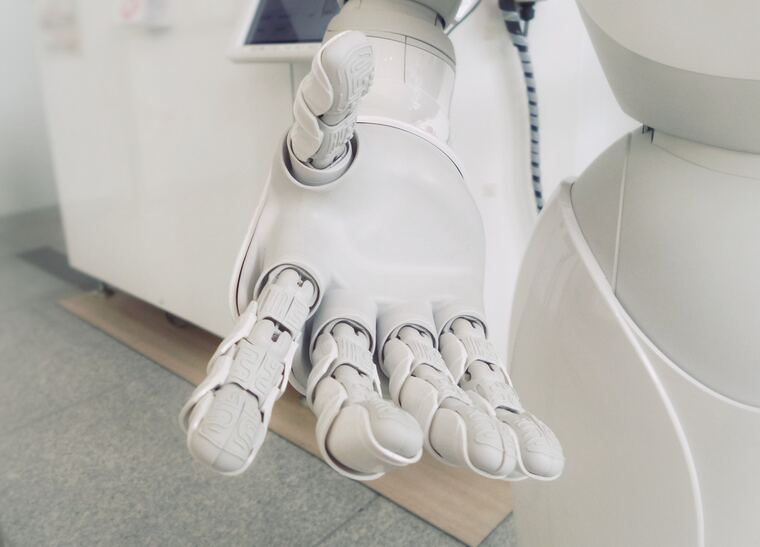
Welcome to the world of non-profit advocacy, where passionate individuals and organizations strive to make a difference in society. These champions of change dedicate their time, energy, and resources towards advocating for causes that are close to their hearts. But as we look ahead into the future, it becomes clear that technology will play an increasingly vital role in amplifying their voices.
Enter artificial intelligence, a game-changing innovation that has already transformed various industries. From healthcare to finance, AI has proven its ability to revolutionize processes and enhance efficiency. Now, imagine harnessing this power for non-profit advocacy – leveraging cutting-edge technology to create even greater impact on social issues.
The Role of Artificial Intelligence in Advocacy Efforts
Artificial Intelligence has emerged as a powerful tool in various industries, and non-profit advocacy is no exception. The role of AI in advocacy efforts is multifaceted, offering new opportunities for organizations to make a greater impact.
One aspect where AI shines in advocacy is data analysis. With vast amounts of information available online, it can be challenging for non-profits to sift through and extract meaningful insights. However, AI algorithms can quickly analyze large datasets, identifying patterns and trends that would have been otherwise overlooked. This enables organizations to make informed decisions based on evidence-backed data.
AI-powered chatbots have revolutionized the way non-profits engage with their audience. These virtual assistants can handle inquiries from supporters or potential donors around the clock, providing instant responses and personalized interactions. By automating these repetitive tasks, staff members are free to focus on more strategic initiatives.
AI also plays a crucial role in outreach efforts by helping nonprofits target their messaging effectively. Machine learning algorithms can analyze demographic information and user behavior patterns to identify individuals who are most likely to support a cause or take action. This targeted approach maximizes resources while increasing the chances of reaching those who are genuinely interested.
AI integration allows non-profits to streamline administrative processes such as donor management and fundraising campaigns. By automating these tasks using intelligent systems, organizations can operate more efficiently with fewer resources.
If used ethically and responsibly, the future possibilities of integrating AI into nonprofit advocacy could be transformative – envisioning an era where machines work alongside human advocates towards social change at an unprecedented scale.

Benefits of AI Integration for Non-Profits
AI integration in non-profit advocacy efforts brings a multitude of benefits. AI can enhance the efficiency and effectiveness of data analysis and decision-making processes. With its ability to process vast amounts of information quickly, AI technologies can help non-profits gather insights from various sources such as social media platforms or news articles to identify emerging trends or public sentiments.
AI-powered chatbots can revolutionize communication channels by providing instant responses and personalized interactions with supporters, volunteers, or beneficiaries. This not only improves engagement but also allows organizations to address concerns promptly, ultimately fostering stronger relationships with their stakeholders.
Another advantage is the potential cost savings associated with implementing AI solutions. By automating repetitive tasks like data entry or administrative work, non-profits can allocate resources more efficiently towards their core mission areas instead of spending valuable time on mundane activities.
AI integration enables predictive analytics that helps non-profits anticipate needs and make informed decisions about resource allocation. For instance, by analyzing past donation patterns and donor behavior data, organizations can optimize fundraising strategies and target specific individuals or groups more effectively.
Lastly yet importantly, AI technologies have the potential to amplify reach through targeted marketing campaigns tailored to individual preferences. By leveraging machine learning algorithms that analyze user behavior online, non-profits can deliver personalized content directly to interested parties who are more likely to engage with their cause.
Potential Challenges and Concerns with AI Integration
As non-profit organizations explore the integration of artificial intelligence (AI) into their advocacy efforts, it is important to acknowledge and address potential challenges and concerns. While AI has the potential to revolutionize how non-profits operate, there are a few key areas that require careful consideration.
One challenge is the ethical use of data. Non-profits must ensure that they have transparent policies in place for collecting, storing, and analyzing data. This includes obtaining informed consent from individuals whose data is being used and implementing robust security measures to protect sensitive information.
Another concern is the potential for bias in AI algorithms. If not properly designed or trained, these algorithms can inadvertently perpetuate existing biases or discriminate against certain groups. It is crucial for non-profits to regularly audit and monitor their AI systems to eliminate any biases and ensure fairness.
The complexity of implementing AI technology can also pose a challenge for non-profit organizations with limited resources. Integrating AI requires expertise in data analysis, machine learning, and programming – skills that may be difficult to acquire or afford. Collaborating with tech partners or seeking grants could help alleviate this issue.
There may be resistance from stakeholders who fear job displacement due to automation. It’s essential for non-profits to communicate clearly about how AI will complement human efforts rather than replace them entirely. Emphasizing new opportunities created by AI can help ease concerns among staff members.
Despite these challenges and concerns surrounding the integration of AI into advocacy efforts, it’s important to recognize that technology advancements often come with obstacles at first but ultimately pave the way for progress.
Ethical Considerations for Non-Profits Using AI
As non-profit organizations begin to explore the integration of artificial intelligence (AI) into their advocacy efforts, it is crucial to consider the ethical implications that come along with this technology. While AI has the potential to revolutionize how non-profits operate and advocate for change, there are important ethical considerations that must be addressed.
One key consideration is transparency. Non-profits using AI should be transparent about how they collect, store, and use data. This means being open about what data is collected, who has access to it, and how it will be used. Transparency builds trust with donors and stakeholders and ensures that individuals understand how their information is being utilized.
Another ethical concern is bias in AI algorithms. These algorithms are only as good as the data they are trained on, so if biased or discriminatory data sets are used, then the outcomes produced by these algorithms may also be biased or discriminatory. Non-profits must carefully select and train their AI systems to mitigate biases and ensure fairness in decision-making processes.
There needs to be ongoing monitoring of the impact of AI integration on marginalized communities and vulnerable populations served by non-profit organizations. While technology can enhance efficiency and effectiveness, it should never exacerbate existing inequalities or exclude those most in need of support.
Future Possibilities and Impact on the Non-Profit Sector
The integration of artificial intelligence (AI) into non-profit advocacy efforts opens up a world of possibilities for the sector. With AI, non-profits can enhance their outreach, improve efficiency, and make a greater impact in addressing societal issues.
One potential future possibility is the use of chatbots powered by AI to engage with supporters and provide them with real-time information. These virtual assistants can handle inquiries, provide personalized recommendations, and even assist in donation processes. This not only saves time for non-profits but also creates a more interactive experience for supporters.
AI can also help analyze vast amounts of data to identify patterns and trends that were previously difficult to detect manually. This enables non-profits to gain valuable insights into donor behavior, campaign effectiveness, and community needs. With this knowledge at their fingertips, organizations can tailor their strategies more effectively and allocate resources where they are most needed.
AI-powered predictive analytics can forecast future scenarios based on historical data. Non-profits can leverage this technology to anticipate potential challenges or opportunities ahead of time, allowing them to proactively plan campaigns or initiatives that address these situations.
However exciting these prospects may be though there are some concerns worth considering when it comes to integrating AI into the field; privacy concerns regarding user data must be addressed carefully while ensuring transparency about how personal information is collected, stored, and used.
Conclusion
The integration of artificial intelligence (AI) into non-profit advocacy efforts holds immense potential for the future of the sector. AI has already started to revolutionize various industries, and its impact on non-profits is no different. By leveraging AI technologies, organizations can enhance their outreach, improve data analysis, streamline operations, and ultimately make a greater impact on the causes they champion.
It’s important for non-profits to approach AI integration with caution and to consider the potential challenges and ethical considerations that come along with it. Ensuring transparency in algorithms and data collection processes will be crucial in maintaining trust with supporters and stakeholders.
As AI continues to advance at a rapid pace, there are endless possibilities for its application in non-profit advocacy. From predictive analytics tools that can identify emerging issues or predict public sentiment to chatbots that provide personalized support and information to supporters, the future looks promising.
Non-profits should embrace this technological advancement as an opportunity rather than a threat. By harnessing the power of AI while staying true to their mission and values, organizations can amplify their impact on society.
Integrating AI into non-profit advocacy efforts presents exciting prospects for driving positive change. The key lies in using these technologies responsibly while always keeping the needs of beneficiaries at heart. With careful consideration of ethics, collaboration between humans and machines can lead us towards a brighter future where technology enables us all to create meaningful social impact together.

